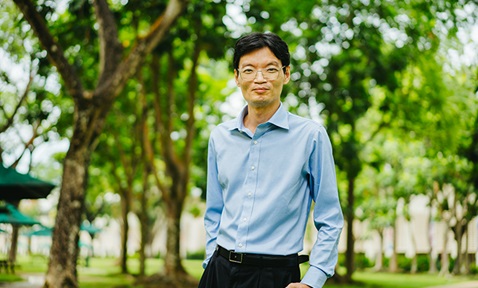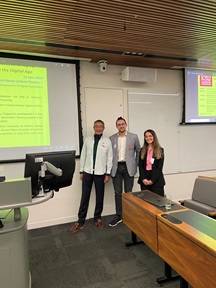Dr Pierina Cheung publishes two papers and a UNESCO report, joins a research consortium as part of their leadership team, and is a member of the editorial board for three journals
Dr Pierina Cheung, Education Research Scientist at the Centre for Research in Child Development (CRCD), has published two papers in the Journal of Development Science. The first paper titled “A million is more than a thousand: Children’s acquisition of very large number words”, examined children’s acquisition of relative order of very large number words such as ‘hundred’, ‘thousand’, ‘million’, ‘billion’ and ‘trillion’ as a first step towards understanding their acquisition. The results showed that children construct a numerical scale for large number words prior to learning their precise cardinal meanings, and highlight how frequency and context may support their acquisition.
The second paper titled “Acquisition of the counting principles during the subset-knower stages: Insights from children’s errors”, examined children’s developmental progression of their counting principles, with an aim to explain the gradual elements that lead to them successfully generating large number sets. The study tested the claim that children who lack the knowledge to generate and count large number sets (subset-knowers) lack cardinal principle (CP) by separating their understanding of the CP from their ability to apply and implement counting procedures. The results showed that children already have knowledge of the CP prior to becoming CP-knowers, and that understanding of the stable-order and word-object correspondence principles likely emerged earlier.
She also published a report titled “Foundations of academic knowledge”, for the International Science and Evidence Based Education (ISEE) Assessment, an initiative of the UNESCO Mahatma Gandhi Institute of Education for Peace and Sustainable Development (MGIEP). Dr Cheung is at Working Group 3 (Education & the Learning Experience), where they assess how education and skills acquisition for all learners at different stages of their life is affected by their learning experiences in and out of the classroom space, as found due to the uniqueness of each learner. The report assesses the acquisition of academic knowledge and skills in domains including literacy, numeracy, sciences, arts and physical education, and examines how learning trajectories arise from complex interactions between individual brain development and sociocultural environment.
Dr Cheung has also joined ManyNumbers, a large-scale, multi-lab, multi-country collaboration on number acquisition that recently got funded by the United States’ National Science Foundation’s Division on Research in Learning (DRL). She is part of the international leadership team, and ManyNumbers aims to expand the investigation of early numeracy to a diverse global network, while promoting new and innovative exploratory projects.
She is also a member of the editorial board for the Journal of Child Development, Asia Pacific Journal of Education, as well as the Journal of Scientific Reports (Registered Reports, covering psychology and education).














/enri-thumbnails/careeropportunities1f0caf1c-a12d-479c-be7c-3c04e085c617.tmb-mega-menu.jpg?Culture=en&sfvrsn=d7261e3b_1)

/cradle-thumbnails/research-capabilities1516d0ba63aa44f0b4ee77a8c05263b2.tmb-mega-menu.jpg?Culture=en&sfvrsn=1bc94f8_1)

7e6fdc03-9018-4d08-9a98-8a21acbc37ba.tmb-mega-menu.jpg?Culture=en&sfvrsn=7deaf618_1)






---cover.tmb-listing.jpg?Culture=en&sfvrsn=42ac239a_1)